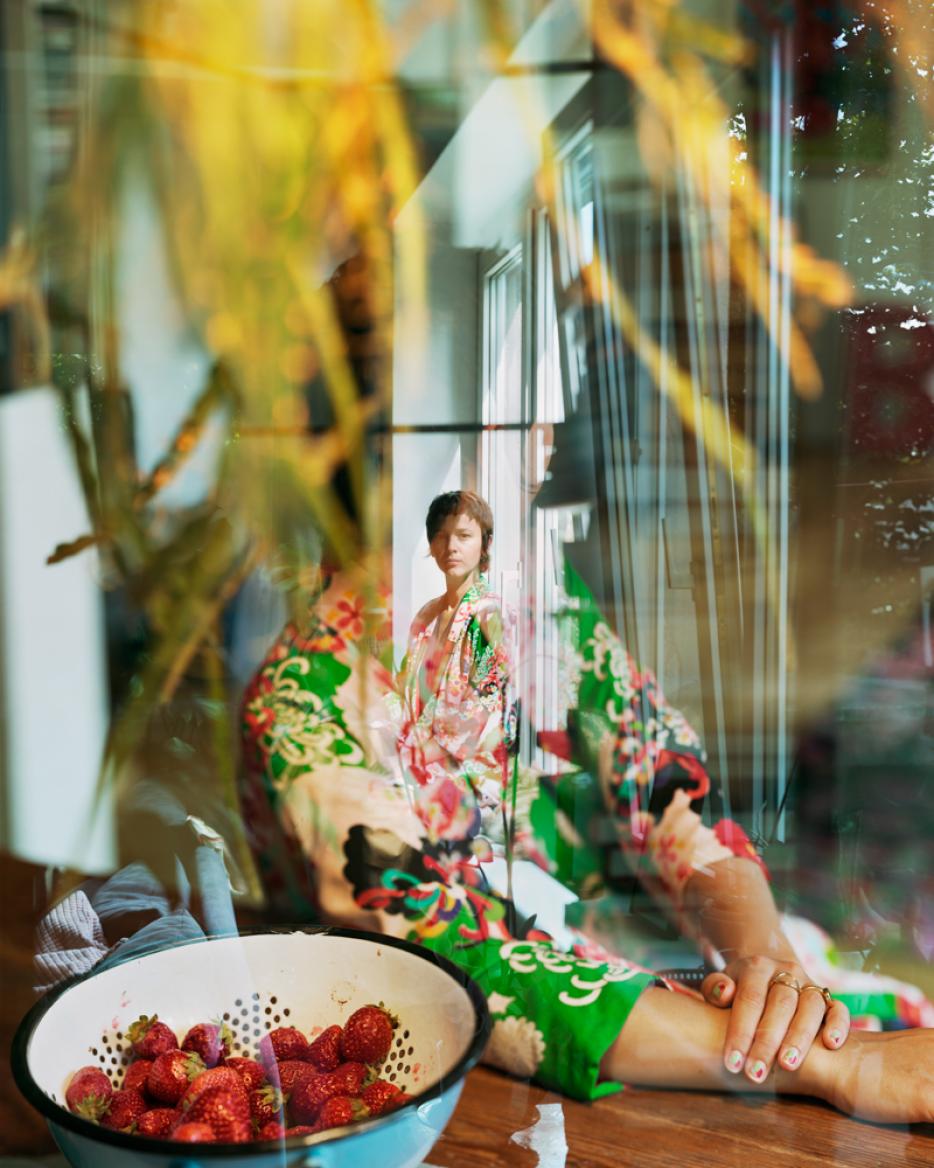
Alec Soth is a photographer based in his hometown of Minneapolis, Minnesota and known for his photo series centring on disconnected communities. Exploring the social distance that exists between people, Soth has developed a particular photographic aesthetic over the last 20 years that focuses on human beings and their relationship to objects and space. He has published more than 25 books of photography, including Sleeping by the Mississippi (2004), NIAGARA (2006) and Songbook (2015), and has put on over 50 solo exhibitions at important art venues like the Jeu de Paume in Paris and the Walker Art Center in Minneapolis.
The title of his most recent book, I know how Furiously your Heart is Beating – which is also the title of his exhibition at Arendt House in Luxembourg – is taken from the last line of Wallace Stevens' poem “The Gray Room”. Like Stevens in his poem, in each photograph, Soth creates a correlation of separation with proximity between the photographer and his protagonist in a particular environment. Through symbolic details and colours, he creates an atmosphere of simultaneous contiguity and distancing.
In this series, what strikes the spectator most is Soth’s ambivalent relationship to the subjects he portrays. On the one hand, there is that sense of distancing that is so typical of his work, while on the other hand one feels a kind of intimacy and complicity with these people, who generally have no direct relationship with the photographer.
In Songbook, Soth borrows the following quote from Eugene Ionesco: “No society has been able to abolish human sadness, no political system can deliver us from the pain of living, from our fear of death, our thirst for the absolute.” With it, he gives us clues to the interpretation and understanding of the emotional states of nostalgia and anxiety, which form a significant part of the general feeling conveyed by his photographs.
It does not matter whether these are a kind of projection of his own feelings onto the people in his pictures, or whether they emanate from the characters themselves.
In the beauty of their isolation, these individuals seem always to have been confined (even before the pandemic?). We see their solitude, but also the intrusion of the photographer into their environment. There is an ever-apparent dichotomy between presence and absence, between near and far, between watcher and watched, between snapshot and staging. As if every photograph were an attempt to fill the space between both sides.
When Soth says that the thing he is really capturing, is the space between himself and his subject, he implies that his photographs become a testimony to this experience, and an invitation to engage in a personal interpretation of this space.
Paul di Felice, Curator
Learn more and tour the virtual exhibition >> https://bit.ly/ArendtArtExpoSoth
41A avenue J.F. Kennedy L-2082 Luxembourg Luxembourg DD/MM/YYYY trueThe title of his most recent book, I know how Furiously your Heart is Beating – which is also the title of his exhibition at Arendt House in Luxembourg – is taken from the last line of Wallace Stevens' poem “The Gray Room”. Like Stevens in his poem, in each photograph, Soth creates a correlation of separation with proximity between the photographer and his protagonist in a particular environment. Through symbolic details and colours, he creates an atmosphere of simultaneous contiguity and distancing.
In this series, what strikes the spectator most is Soth’s ambivalent relationship to the subjects he portrays. On the one hand, there is that sense of distancing that is so typical of his work, while on the other hand one feels a kind of intimacy and complicity with these people, who generally have no direct relationship with the photographer.
In Songbook, Soth borrows the following quote from Eugene Ionesco: “No society has been able to abolish human sadness, no political system can deliver us from the pain of living, from our fear of death, our thirst for the absolute.” With it, he gives us clues to the interpretation and understanding of the emotional states of nostalgia and anxiety, which form a significant part of the general feeling conveyed by his photographs.
It does not matter whether these are a kind of projection of his own feelings onto the people in his pictures, or whether they emanate from the characters themselves.
In the beauty of their isolation, these individuals seem always to have been confined (even before the pandemic?). We see their solitude, but also the intrusion of the photographer into their environment. There is an ever-apparent dichotomy between presence and absence, between near and far, between watcher and watched, between snapshot and staging. As if every photograph were an attempt to fill the space between both sides.
When Soth says that the thing he is really capturing, is the space between himself and his subject, he implies that his photographs become a testimony to this experience, and an invitation to engage in a personal interpretation of this space.
Paul di Felice, Curator
Learn more and tour the virtual exhibition >> https://bit.ly/ArendtArtExpoSoth
L-2082 Luxembourg, Luxembourg